
Kód: 04725143
1979
Autor David W. Lesch
There are a number of individual years in modern Middle East history that stand out in importance. The ledger just since the end of WWII would invariably include the following: 1948, 1956, 1967, 1973, 1982, 1991, and 1993. In each ... celý popis
- Jazyk:
 Angličtina
Angličtina - Väzba: Brožovaná
- Počet strán: 204
Nakladateľ: Taylor & Francis Inc, 2001
- Viac informácií o knihe

Mohlo by sa vám tiež páčiť
Darčekový poukaz: Radosť zaručená
- Darujte poukaz v ľubovoľnej hodnote, a my sa postaráme o zvyšok.
- Poukaz sa vzťahuje na všetky produkty v našej ponuke.
- Elektronický poukaz si vytlačíte z e-mailu a môžete ho ihneď darovať.
- Platnosť poukazu je 12 mesiacov od dátumu vystavenia.
Viac informácií o knihe 1979
Nákupom získate 152 bodov
 Anotácia knihy
Anotácia knihy
There are a number of individual years in modern Middle East history that stand out in importance. The ledger just since the end of WWII would invariably include the following: 1948, 1956, 1967, 1973, 1982, 1991, and 1993. In each of these years war, realignment, and/or peace processes occurred, i.e., some event or series of events that engendered a dramatic and lasting period of change by causing shifts in the balance of power and/or ideological and perceptual transformations in the region. At no time, however, was dramatic and all-encompassing change more apparent in the Middle East in the post-WWII era than in 1979--so much so that, in my opinion, future Middle East scholars will conclude that the year 1979 constituted a, if not the major watershed in modern Middle East history.The happenings of 1979, particularly the signatory events--the Iranian revolution, the Egyptian-Israeli peace treaty, and the Soviet invasion of Afghanistan--fundamentally altered the entire Middle East and had far-reaching consequences beyond the region itself. The regional instability created by the Iranian revolution led directly to the taking of the U.S. hostages in Teheran later in the year, an event in and of itself that had important domestic political repercussions in the United States as well as opened the door of terrorism against U. S. interests. The Iranian revolution also spawned the environment for the Iraqi invasion of Iran in 1980, a war that lasted eight long years and established the parameters for the infamous Iran-contra affair, and, through the Iran-Iraq war, the revolution can be directly linked to the 1990 Iraqi invasion of Kuwait and the resulting Gulf crisis and war. The Egyptian-Israeli peace treaty created a framework for peace that perforce compelled the Arab states to pursue a negotiated resolution of the Arab-Israeli conflict, to which the historic 1993 Israeli-Palestinian Declaration of Principles and the 1994 Israeli-Jordanian peace treaty owe a great deal; in addition, the treaty upset the balance of power in the Arab world that led directly to Israel's invasion of Lebanon in 1982 and affected Saddam Hussein's decision to invade Iran in 1980. Finally, the disastrous Soviet invasion of Afghanistan accelerated the break-up of the Soviet empire and the end to the cold war as well as affected the political disposition in the United States that led to the Reagan era. At the regional level, the war ravaged Afghanistan, and in the ensuing chaos it created a multitude of opportunities for the expansion of Islamist movements fighting against godless communism and then American imperialism--the Taliban, Osama bin Laden, the heightening of Pakistani-Indian hostilities, and disruption and turmoil in the former Central Asian Soviet republics are all the off-srping of the Kremlin's decision to invade Afghanistan. An important breaking point had occurred, and new paradigms had been established. 1979 was both an end and a beginning.After an opening chapter that provides a historiographical analysis of the efficacy and legitimacy of examining the made-made and Western categorization called "1979," the book offers a historical survey of the three primary events occurring during the year: the Iranian revolution, the Egyptian-Israeli peace treaty, and the Soviet invasion of Afghanistan. The culminating third chapter of the book connects the dots of history, i.e., outlines and explains the important repercussions of the events of 1979 down to the present day.
 Parametre knihy
Parametre knihy
Zaradenie knihy Knihy po anglicky Humanities History Regional & national history
61.45 €
- Celý názov: 1979
- Autor: David W. Lesch
- Jazyk:
 Angličtina
Angličtina - Väzba: Brožovaná
- Počet strán: 204
- EAN: 9780813339160
- ISBN: 0813339162
- ID: 04725143
- Nakladateľ: Taylor & Francis Inc
- Hmotnosť: 500 g
- Rozmery: 229 × 152 × 11 mm
- Dátum vydania: 01. August 2001
Obľúbené z iného súdka
-

Hundred Years' War on Palestine
12.08 € -24 % -

Ten Myths About Israel
12.59 € -16 % -

Strange Death of Europe
16.58 € -16 % -
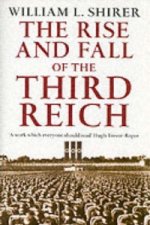
Rise And Fall Of The Third Reich
22.01 € -23 % -

Citizens
22.01 € -23 % -

Last Voyage of the Lusitania
20.68 € -
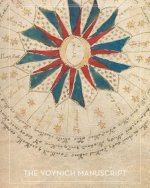
Voynich Manuscript
41.27 € -

Moshe Dayan
27.34 € -9 % -

The Fourth Turning
20.68 € -1 % -

General's Son
20.27 € -4 % -

Reverence for Wood
9.21 € -19 % -

Yitzhak Rabin
16.58 € -10 % -

Hell's Cartel
21.19 € -13 % -

Interpreting Our Heritage
30.21 € -

Paradise Lost
12.79 € -24 % -

Games without Rules
19.25 € -6 % -

Voices of the Foreign Legion
17.40 € -5 % -

American Nations
16.69 € -14 % -

Lynching in the New South
34.30 € -

City of Fortune
14.43 € -23 % -
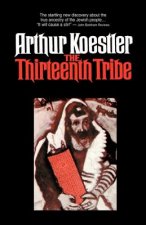
Thirteenth Tribe
16.89 € -

Twilight of the Romanovs
38.20 € -23 % -

Habsburg Monarchy 1809-1918
16.58 € -23 % -

Ethnic Cleansing of Palestine
14.43 € -23 % -

Decline and Fall of the Roman Empire
5.93 € -21 % -

Palestine
20.27 € -21 % -

The Secret Diaries Of Miss Anne Lister: Vol. 1
13.61 € -14 % -

Giza Power Plant
16.07 € -16 % -
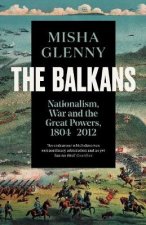
The Balkans, 1804-2012
22.01 € -23 % -

Age Of Revolution
16.58 € -23 % -

Millennium
13.20 € -24 % -

Alexiad
17.81 € -20 % -

Heraclius, Emperor of Byzantium
33.38 € -18 % -

1948
24.68 € -10 % -
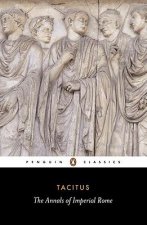
Annals of Imperial Rome
14.43 € -23 % -

Strike and Hold
30 € -3 % -

Diana: Her True Story - In Her Own Words
11.05 € -23 % -

How to be a Victorian
14.43 € -23 % -

The Oxford History of Ancient Egypt
15.46 € -23 % -

Londoners
11.26 € -25 % -

History of Japan
16.48 € -18 % -

Illustrated Encyclopedia of Uniforms of the American War of Independence
22.01 € -23 % -

Olympic, Titanic, Britannic
30.31 € -15 % -

Medieval Monsters
11.15 € -23 % -

Secret History
12.28 € -23 % -

The Thirteenth Tribe
12.69 € -

Footnotes in Gaza
27.34 € -13 % -
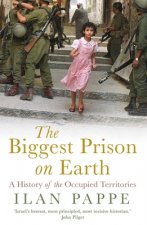
Biggest Prison on Earth
14.43 € -23 % -

Great Gatsby (Wisehouse Classics Edition)
16.17 € -37 %
Osobný odber Bratislava a 2642 dalších
Copyright ©2008-24 najlacnejsie-knihy.sk Všetky práva vyhradenéSúkromieCookies




 21 miliónov titulov
21 miliónov titulov Vrátenie do mesiaca
Vrátenie do mesiaca 02/210 210 99 (8-15.30h)
02/210 210 99 (8-15.30h)